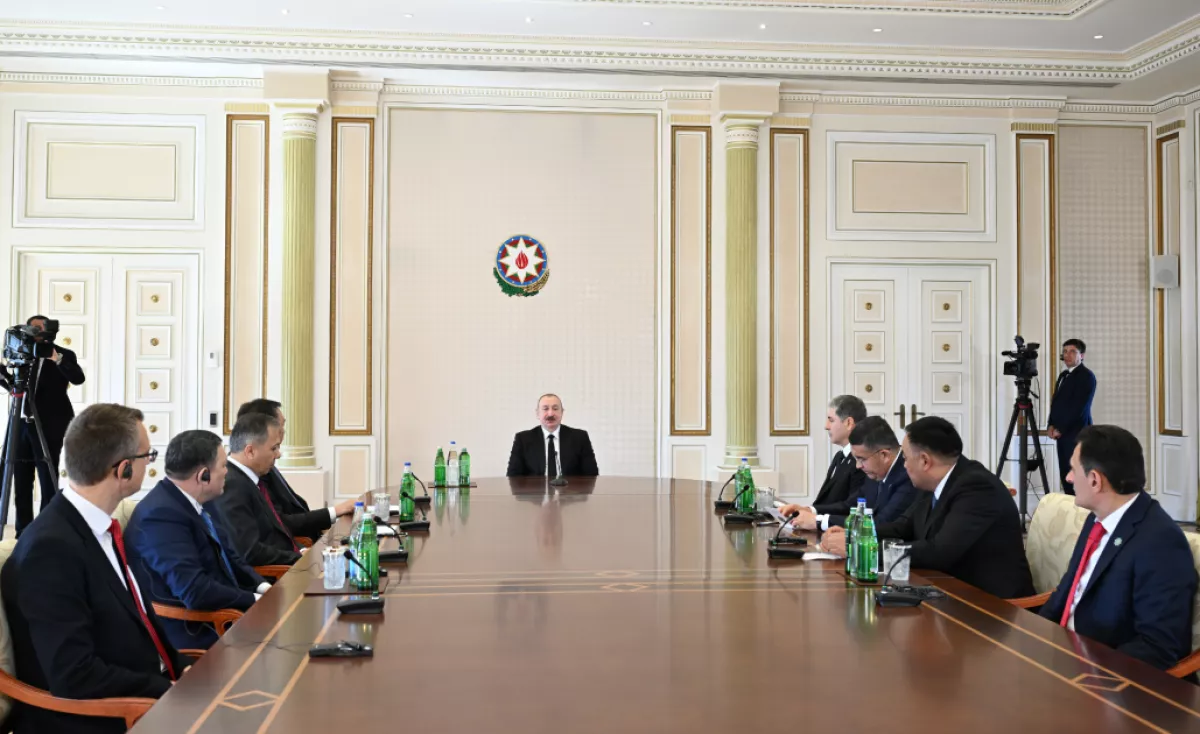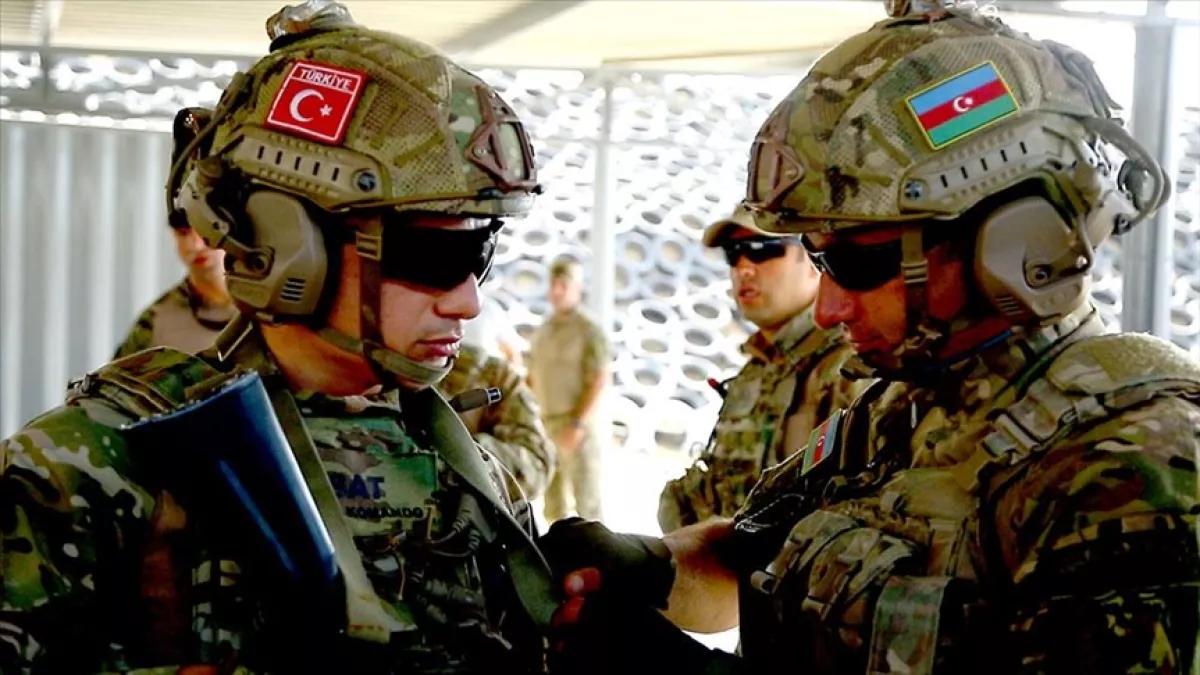Organisation of Turkic States as shield of sovereignty Joint defence — a response to geopolitical challenges
Despite internal stability in the member countries of the Organisation of Turkic States (OTS), there are and will be threats, challenges, and attempts at external interference. This was stated on May 23 by the President of Azerbaijan, Ilham Aliyev, while receiving the delegation of participants of the second meeting of the Ministers of Internal Affairs of the Organisation of Turkic States (OTS).
“No one is immune from this. Therefore, safeguarding public order — the main task of the internal affairs bodies — is an important factor in ensuring internal stability in each of our countries. The coming together of the internal affairs bodies of the member states, the regular holding of meetings, and the exchange of views, experience, and information — all of this carries great importance,” emphasised the Azerbaijani president.

Azerbaijan knows firsthand what attempts by external forces to destabilise internal political stability look like. The so-called "export of revolutions" was also attempted in Azerbaijan. We can clearly see the consequences in countries where "revolutionary" changes took place, using Ukraine as an example. Armenia, too, where the so-called "velvet revolution" occurred and Nikol Pashinyan came to power on its wave, is now slowly but surely heading towards a precipice. In that country, there is a power struggle between former and current leaders, accompanied by truly farcical attempts by the current authorities to pull off another “sleight of hand,” during which pro-Western efforts will be noticeably reduced, alongside renewed efforts to reclaim the status of “Russia’s outpost in the South Caucasus.” That is the entire outcome of the aforementioned “revolution.”
Moreover, we are now witnessing attempts to revive imperial plans for the “restoration of the USSR.” The authors of such initiatives shamelessly voice them openly, thereby demonstrating complete disrespect for the choice made more than 30 years ago by the citizens of the former Soviet republics in favour of independence and sovereignty. However, these provocative plans only underscore the importance of consolidating the efforts of Turkic states to strengthen their sovereignty and territorial integrity.
Azerbaijan, 20% of whose territory was under Armenian occupation for more than a quarter of a century, knows better than anyone else how important it is to have a strong army, economy, and allies to restore justice and uphold the fundamental principle of international law — territorial integrity. That is precisely why Azerbaijan was at the forefront of creating and strengthening the Organisation of Turkic States (OTS).
The geopolitical landscape on the planet is rapidly changing, and with it, the structure of global security is transforming. Against the backdrop of escalating conflicts, increasing geopolitical rivalry, and the weakening of international institutions, the question of creating new military-political alliances capable of protecting the interests of their members is becoming ever more relevant.
One of these potential alliances could be the military-political organisation of the Turkic states, which could be conditionally called the “Turkic NATO.” This is not merely an idea but a strategic necessity, especially for the member states of the Organisation of Turkic States (OTS), which include Azerbaijan, Türkiye, Kazakhstan, Uzbekistan, and Kyrgyzstan.
United by common historical, cultural, and linguistic roots, the Turkic states have already made significant progress towards institutional integration. The establishment of the OTS in 2009 was a turning point, cementing the desire to coordinate efforts in the economy, culture, and politics. However, over the years, it has become clear that without a strong security component, the organisation will not be able to ensure strategic autonomy and protect its member countries.

The example of Azerbaijan and Türkiye clearly demonstrates how effective an alliance based on trust, a common military doctrine, and technology exchange can be—an alliance that served as a cold, sobering shock to forces that dreamed of obstructing the victorious march of the Azerbaijani army during the 44-day war, and to those who fervently wished to ignite a new conflict in the region by stoking revanchist sentiments among Armenians.
As one of NATO’s leading countries, Türkiye undoubtedly possesses a developed defence industry complex, including in areas such as drone technology, air defence, and armoured vehicles. These capabilities could serve as a platform to strengthen the defence capacities of other OTS member states and to establish joint ventures. Naturally, it is also important to draft corresponding agreements clearly stating that an attack on any one of the OTS member states will be considered an aggression against all—similar to Article 5 of the NATO Charter.
In the face of threats, challenges, and attempts at external interference—which, as President Ilham Aliyev rightly stated, will always exist—the unification of efforts among all Turkic world countries is a vital necessity.
The “Turkic NATO” will undoubtedly become a reliable shield and sword to protect the sovereign rights of the OTS member states from those who wish to impose their own rules of the game on us.








